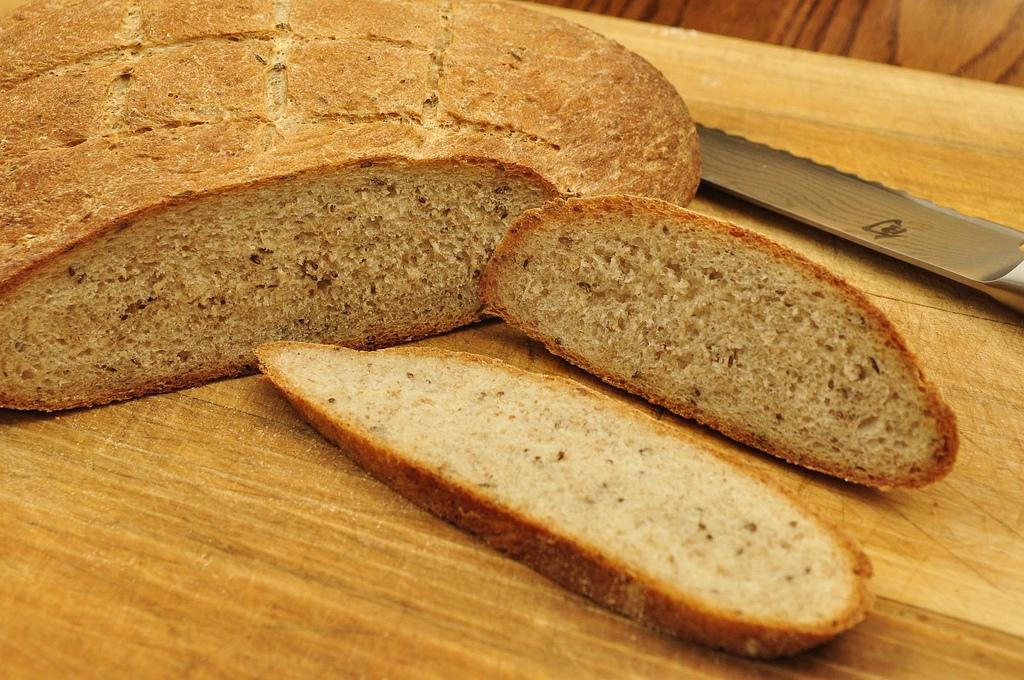
- posted: Feb. 06, 2017
Over the past few years, there has been a huge movement advocating the gluten-free diet. More grocery stores are dedicating shelf space to gluten-free items and more restaurants are providing gluten-free options and even entirely separate menus. What is nice is that those with gluten sensitivities and allergies are finally able to have choices when it comes to their diet. They no longer have to feel isolated and are able to enjoy meals with friends and family again. Unfortunately not all has been good with this increased attention. There are many myths surrounding the gluten-free diet that people completely overlook that may turn this diet into a catastrophe.
Myth 1: Gluten is the devil!
Lets not be too fast to blame a poor little protein for all of our dietary issues. Gluten is simply a protein that is found in wheat, barley and rye and is most notable for it’s effect on those with Celiac’s disease. Those with this condition often times have some type of gastrointestinal (GI) issue (such as diarrhea, bloating and gas) after ingestion of something containing gluten proteins. The reason they have these GI issues is due to their intestinal tract, basically, having an allergic reaction to the gluten protein and becoming highly inflamed. What is interesting is that research is showing that there are multiple proteins (such as gliaden) that contribute to Celiac’s disease, all of which can be found in the aforementioned grains. Therefore, even though gluten bears the brunt of the negative press, it has many cohorts that can cause a reaction. Plus, it is simply a protein!
Myth 2: Everyone should be gluten-free
I’m sure you’ve had friends before who have told you to give their diet a try, and I’m sure one of those diets was the gluten-free diet. But do you really need to be? Not necessarily. Would it hurt to try it for a couple months? Absolutely not!
Just to reiterate, those who need to be on the gluten-free diet are those suffering from a sensitivity or allergy to the gluten proteins (Celiac’s disease). In addition, there is some really interesting and new research out there showing that the gluten-free diet can be beneficial not only for those with Celiac’s disease, but for people with skin, thyroid and neurologic issues. There are multiple studies performed showing complete remission of symptoms of eczema, psoriasis and dermatitis from simply getting off gluten! Similarly, there are some studies showing improvement in Alzhemeimer’s disease, Parkinson’s disease and multiple sclerosis. Furthermore, the connection between gluten and its effect on the thyroid is well documented with entire books written on their association (see below).
Therefore, no, everyone does not be on the gluten-free diet. But, if you have any gastrointestinal, dermatological, thryoid or neurological disorders, it would be more than worth your time to give the GFD a try for a couple months.
Myth 3: Gluten-Free Diet will help me lose weight
Well now this one is completely up to you. Going gluten-free does not automatically guarantee you a drop in pant size, but if done correctly, weight-loss is a nice perk. When it comes to weight loss, there are many factors that all play together, and unfortunately the equation is different for everyone. Weight loss is determined by: your activity level, your occupation, what you eat and when, your body’s metabolism, how much sleep you get, what you do in your free time, your genetics, and about a million other things. Of these though, the two that we can control most readily are diet and exercise (unless you can figure out how to change your genes or get a job where you walk eight hours a day). Increasing your activity level and feeding your body with highly nutritious whole foods can help you on the road to pant-size recovery. The gluten-free diet can help here since cutting out grains (and sugar, see below) has been shown to be a highly effective way to lose weight. But again, this must be done correctly, see Myth #5.
Myth 4: That tiny bit of bread won’t hurt me
This is probably the most common of all the myths surrounding the gluten-free diet. Most people believe that just a small amount of bread or beer will have no effect on their symptoms or GI health, but this has been shown to be completely wrong. The new research shows that even the smallest amount (less than 10 parts per million, which is incredibly small) can trigger the immune response of the GI system. What is even more incredible is that this response can continue to last for up to 6 weeks! So basically, if you really want to reap the benefits of the gluten-free diet, you must remain 100% gluten free. There is no part-time with this diet, and unfortunately, no cheat days.
Myth 5: Gluten-free diet is always a healthy diet
This one is definitely not true. Even though the increased publicity has done wonders for bringing choices to those with Celiac’s disease, it has also brought forth the entire food industry, which is notorious for the sugarification of our food supply. The worst part of this though is that they are passing off these sugar-filled gluten-free processed foods as the healthier option. Just 2 weeks ago I read the ingredients on the back of a gluten-free and organic granola bar and it actually had more grams of sugar than a candy bar! Even though it may look and sound healthy, you have to make sure the nutritional facts add up. In order to truly be a healthy diet, all grains should be removed (not just the gluten containing ones), the overall sugar level should be kept low, and vegetables and fruits should be a major priority. Again, the gluten-free diet has the potential to be a healthy diet, but you will have to be active in making sure your food choices are nutritionally sound.
As you can see, the gluten-free diet should be explored for anyone with GI, skin, neurological or thyroid issues; but it can also be beneficial for everyone else when it is done correctly. Even though there are exponentially more gluten-free options now than there used to be, always remember that processed gluten-free food is still just processed food.
Office Hours
By Appointment Only
8:00 am - 7:00 pm
Closed
8:00 am - 7:00 pm
8:00 am - 7:00 pm
8:00 am - 7:00 pm
9:00 am - 12:00 pm
Closed
